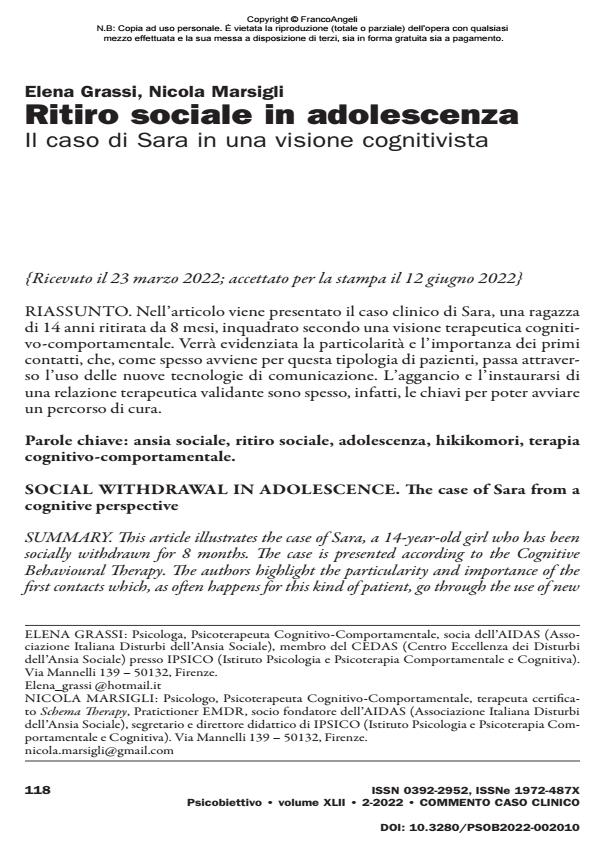Social withdrawal in adolescence. The case of sara from a cognitive perspective
Journal title PSICOBIETTIVO
Author/s Elena Grassi, Nicola Marsigli
Publishing Year 2022 Issue 2022/2
Language Italian Pages 18 P. 118-125 File size 622 KB
DOI 10.3280/PSOB2022-002010
DOI is like a bar code for intellectual property: to have more infomation
click here
Below, you can see the article first page
If you want to buy this article in PDF format, you can do it, following the instructions to buy download credits

FrancoAngeli is member of Publishers International Linking Association, Inc (PILA), a not-for-profit association which run the CrossRef service enabling links to and from online scholarly content.
This article illustrates the case of Sara, a 14-year-old girl who has been socially withdrawn for 8 months. The case is presented according to the Cognitive Behavioural Therapy. The authors highlight the particularity and importance of the first contacts which, as often happens for this kind of patient, go through the use of new communication technologies. The engagement and the establishment of an emotionally validating therapeutic relationship are in fact often the key to start a treatment path.
Keywords: social anxiety, social withdrawal, adolescence, hikikomori, cognitive behavioural therapy.
- Il terapeuta sistemico alle prese con il fenomeno dei NEET (Not in Education, Employment or Training) tra sfide e possibilità Claudia Agostino, Enrico Visani, in RIVISTA DI PSICOTERAPIA RELAZIONALE 60/2025 pp.25
DOI: 10.3280/PR2024-060002
Elena Grassi, Nicola Marsigli, Ritiro sociale in adolescenza. Il caso di Sara in una visione cognitivista in "PSICOBIETTIVO" 2/2022, pp 118-125, DOI: 10.3280/PSOB2022-002010